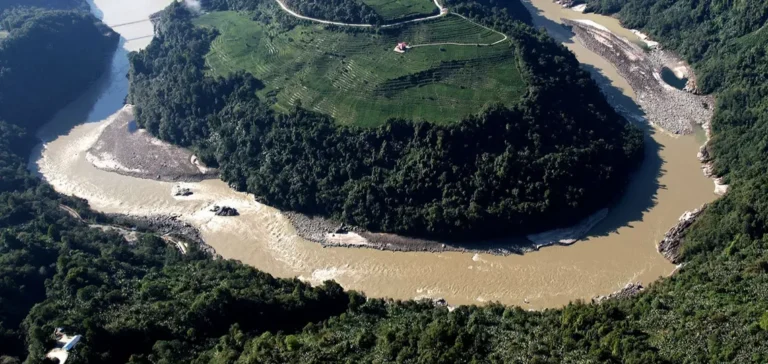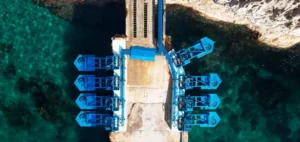China has started construction of a 60-gigawatt hydropower dam, announced as the largest in the world. The project comes with the creation of a public company, China Yajiang Group Co. Ltd., specifically tasked with assuming all risks associated with the construction, according to information published by S&P Global Ratings. This initiative aims to increase the country’s hydropower capacity by 16% and boost electricity output from this sector by 22%.
Major logistical challenges in Tibet
The dam will be built in a remote region of Tibet, where the lack of infrastructure presents a challenge for delivering equipment and managing the workforce. The project is scheduled for completion within a period of ten to fifteen years, with a capacity nearly three times greater than that of the Three Gorges Dam, already considered a global benchmark. On its own, the new dam will represent the equivalent of 15% of Europe’s total hydropower production.
The works will be based on an unprecedented technique, involving diverting a river through a tunnel drilled in the mountain to produce electricity. Construction costs are estimated at $167bn (CNY1.2tn), according to figures provided by the government.
State structure to absorb risks
To limit the exposure of existing electricity producers, China has created China Yajiang Group Co. Ltd., a state-owned company responsible for managing all execution and financial risks. This organisation makes it possible to isolate the operation from the balance sheets of other sector groups, which have limited financial headroom. S&P Global Ratings considers that this approach aims to protect the ratings of producers already present in the market.
The logistical scale of the site, the geographical environment and the techniques employed place this project at the centre of attention for the hydropower sector. The management of climatic, human and technical risks is a priority for the new public entity. In the long term, this dam could transform the dynamics of the hydropower market and strengthen China’s position in the sector.






















